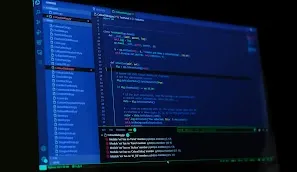Why Learn Coding?
Before we jump into the formula, let’s quickly talk about why coding is worth learning.Coding, or programming, is the process of creating instructions for computers to follow. From websites to apps to video games, coding is what makes all of these digital tools work. Knowing how to code opens doors to many career opportunities, from software development to data science. Plus, it helps you think more logically and solve problems better. Even if you don’t become a professional coder, understanding how code works gives you an edge in many fields.
Coding education formula
Let’s break down coding into a formula that anyone can follow:
1. Start with the Basics The first step in learning to code is to start with the fundamentals. Don’t worry about advanced languages or complex problems at the beginning. Start with a simple programming language like Python or HTML, which are beginner-friendly and widely used.
Here are some things to focus on:
1.Syntax:
Every programming language has its own set of rules, known as syntax. It’s like learning grammar in a spoken language. Understand how to write simple instructions in your chosen language.
Basic Concepts: Learn about variables, data types (like numbers and text), and basic operations (like addition or subtraction in coding). These are the basic elements of coding we can say building blocks. It’s essential not to rush this phase. Take your time to understand the basics thoroughly because everything else you learn will build on this foundation.
2. Break Down Problems Coding
Break down problem coding is all about solving problems. Whether you’re creating a website or developing a game, the goal is to instruct the computer to complete tasks. The key is to break down big problems into smaller, more manageable steps. Here’s how:
Understand the Problem:
Before writing any code, take time to understand what you’re trying to achieve. What’s the end goal?
Plan Your Solution: Break the problem down into smaller tasks. For example, if you’re coding a calculator, start by figuring out how to take input from the user, then figure out how to perform basic math operations, and so on.
Write and Test Your Code: Write code for each small task and test it immediately to make sure it works before moving on to the next step.
By tackling problems in small pieces, coding becomes much more approachable, and you’ll learn more effectively.
3. Practice Regularly
Practice Regularly Like learning any new skill, coding takes practice. The more you code, the better you will become. But here’s the trick: practice consistently. You don’t need to spend hours coding every day, but regular short sessions will help build your skills faster than cramming for hours all at once. Here are a few ways to practice:
Set Small Goals: Start by coding simple projects, like a personal website, a to-do list app, or a guessing game. These small goals keep you motivated.
Join Coding Challenges: Participate in online coding challenges or contests. They’re a great way to test your skills, learn from others, and solve real-world problems.
Debugging Practice: Debugging (finding and fixing errors in code) is a crucial part of coding. Don’t be frustrated by errors—they’re a natural part of learning. Each mistake helps you improve.
4. Learn from Others
Learn from Others While coding can sometimes feel like a solitary task, you don’t have to learn it alone. One of the best ways to improve your coding skills is to learn from others. Here’s how:
Join Online Communities: Platforms like GitHub, Stack Overflow, or Reddit are filled with programmers who share their code, answer questions, and provide feedback. Engaging with these communities will help you learn faster and avoid common mistakes.
Read Other People’s Code: Looking at how experienced programmers solve problems is incredibly valuable. Study open-source projects or sample code to understand different approaches. Ask for Help: Don’t hesitate to ask questions. Even seasoned programmers get stuck sometimes, and there’s always something new to learn. Whether you ask in forums or take a coding course, getting help will speed up your learning.
5. Build Real Projects
Build Real Projects As you gain confidence in your coding skills, start working on real-world projects. Building something practical not only reinforces what you’ve learned but also gives you a sense of accomplishment. Real projects also help you understand how different coding concepts fit together. Some ideas for beginner projects include:
Personal Portfolio Website:
Showcase your skills and projects by building your own website.
Weather App: Use a public API to build an app that shows the weather in different cities.
Simple Game: Create a basic game, like Tic-Tac-Toe or Snake, to put your coding skills to the test.
These projects give you hands-on experience, making your coding journey more fun and fulfilling.
Conclusion
Learning to code can seem intimidating at first, but with a step-by-step formula, it becomes much more manageable. Start with the basics, break down problems, practice regularly, learn from others, and build real projects. The key is to stay consistent and curious every new line of code brings you closer to mastering the skill.
Remember, coding is a marathon, not a sprint. Celebrate small victories along the way, keep experimenting, and most importantly, enjoy the process. Who knows? The next big app or website might just come from you! Happy coding!




Post a Comment